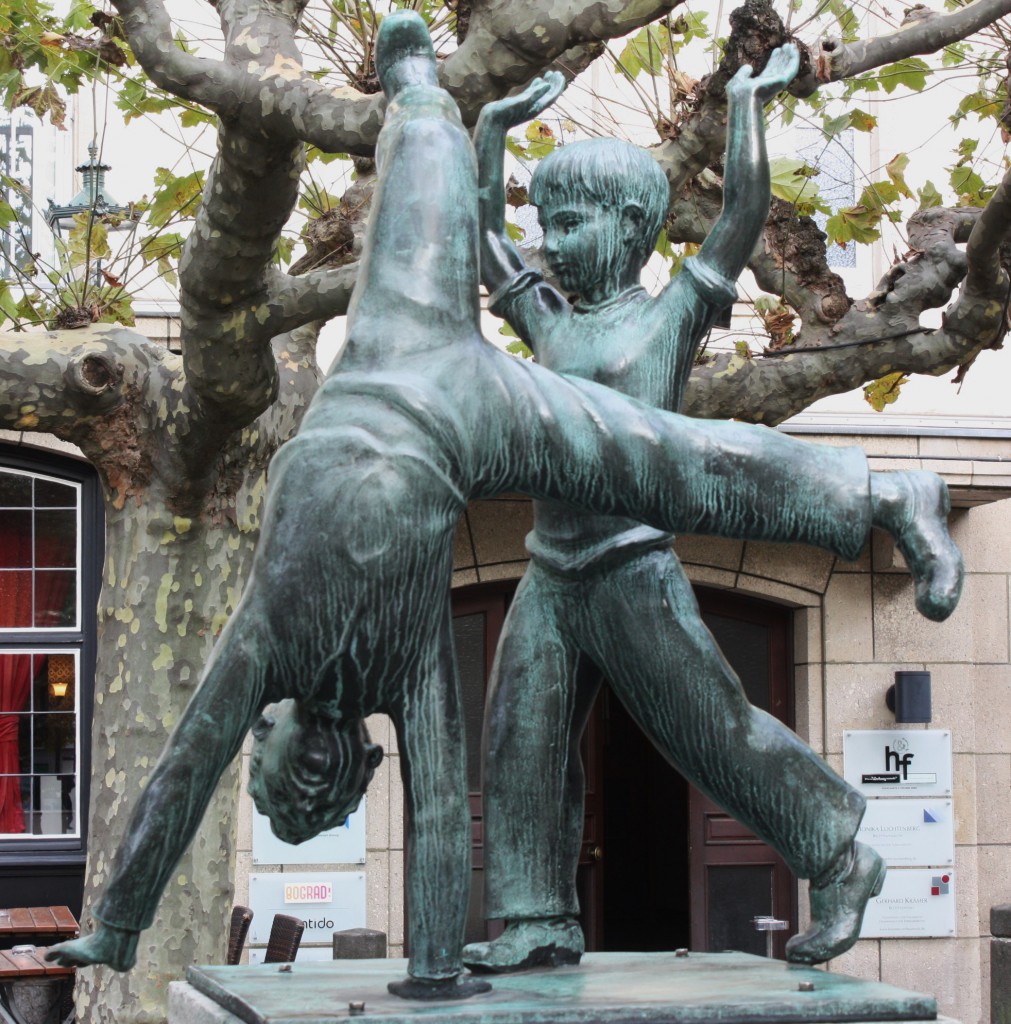
Today’s post is by guest-blogger Bob Sessions:
Unlike the Holy Rover, I had no official assignments on our trip through northern Europe last November. But nevertheless I quickly found myself traveling with a sense of purpose—the very definition of a pilgrimage. Whether taking pictures or simply reveling in the wonders I beheld, I learned a great deal about opening myself to spiritual experiences and growth.
I have long known about the Buddhist concept of Beginner’s Mind, but this trip made me realize its truths deeper than ever before. While Beginner’s Mind is part of Buddhist teaching, it’s also a central goal of every meditative tradition, pointing to the necessity of reducing or eliminating barriers to contemplation such as our active internal dialogue (“monkey mind”), our prejudices and beliefs, and even our very selves (egos). While many people recognize that pilgrimage can help us open ourselves to the holy through spiritual experiences, I think it’s also important to realize that pilgrimage can be an avenue to Beginner’s Mind.
Having never visited continental Europe, for example, I was blown away by Dusseldorf, Germany, our first stop. Everything seemed different to me–the cobblestone streets, architecture, public art, small shops, riverfront, styles of fashion–even though this rich and vibrant city is very cosmopolitan, western, and new (since much of it was rebuilt after World War II).
As I was exclaiming about the wonders of this new (to me) world, Lori laughed and said just wait, reminding me of the places we still were to visit, including Amsterdam, Paris, the Rhine Valley and Belgium. She was right, of course, but the initial shock of the new was a crucial first step in opening my mind. What I was experiencing was a reality where my usual habits and presuppositions often were unhelpful, where I needed to observe carefully before judging or acting, and where many of my anticipations or predictions were off mark.

Basically, I had two choices. Either I could follow my usual psychological strategy and try to fit what I was experiencing into familiar frameworks, or I could open up to the new and the unbidden—in other words, give up control. Initially, the former path is easier because it requires no psychological changes. All you need to do is use pre-existing categories to give your experience meaning and feel in control. To set such well-established mechanisms aside can be difficult because you are likely to feel out of control.
For whatever reason, the initial joy of discovering and exploring a new world was enough to allow me to suspend judgment throughout our trip. It was surprisingly easy, because once I slipped into Beginner’s Mind I discovered how much fun it is to experience life in such a fresh way. Almost every day brought rain or snow (after all, it was November in northern Europe) but the world I experienced sparkled with fresh possibilities and new delights.
I also realized that if I was to devolve into my habitual patterns I could at times have been the proverbial grumpy old man (or worse, the ugly American) because every day much of what the world dished up was contrary to my usual expectations. Twice I did grump: once when lost in Paris, and again as we were checking through customs on our return to Chicago and were waiting for our luggage. Both times I was startled by how quickly I fell into the pit of anger and self-pity, and I was embarrassed and sad to have jolted myself out of Beginner’s Mind and back into control mode.
When we were unable to find our hotel in Paris, happily, a kindly Frenchman jolted me out of my sour mood by helping us find our way, shattering my prejudices about rude and aloof French people. His graciousness ushered me back into a more open and less judgmental state of mind. And upon our return to Chicago, after several outbursts of frustration at the passing array of suitcases that were not mine I realized not only that my childish fits weren’t making any difference to the conveyer belt, but also that all I was doing was clouding my experience.
I was able to transcend my usual experiential lenses because it was simply impossible to keep up the pretense of independence and control when my dependencies were so palpable. Leaving much of my ego behind was also helped by my desire to know what it is like to be German, Dutch, French or Belgium. You simply cannot get inside someone else’s experience if you begin with the assumption that their experiential filters are the same as yours.

Some of our richest experiences in Europe came as a result of being invited into the home and life of Annechien, a dear woman in Amsterdam who is a devoted reader of this blog. Through wonderful hours of socializing with her I realized how crucial a part of Beginner’s Mind listening is. And again, I discovered the joy of experiencing the world on terms other than my own.
I am happy to report that the afterglow of our pilgrimage through northern Europe lasted for some time. My dreams, as well as my waking experiences, resonated with echoes of Europe, and I hope I never forget the gifts and wonders of that trip. But I also hope that I have learned to be more open, less judgmental and less in control in my home territory where I am so comfortable with my habits of body and mind. For here, too, the world sparkles with the unbidden.











